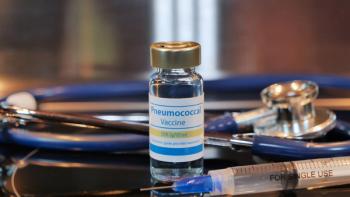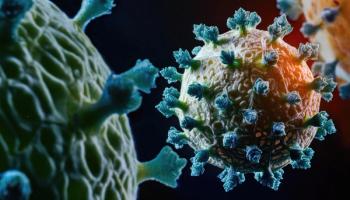
By taking a research-based approach, clinical trials can become more diverse and better serve the needs of all individuals.

By taking a research-based approach, clinical trials can become more diverse and better serve the needs of all individuals.

Chimeric antigen receptor (CAR) T-cell therapy can engineer T cells to target malignant cells in multiple myeloma.

The findings suggest that exploring gender identity is a normal part of adolescent development for some youths.

The committee, after being presented evidence by the working group, recommended the vaccine for adults aged 65 and older and those 19 or older who have current recommendations to receive a pneumococcal vaccine.

In a rare case of non-tumor anti-Tr/DNER antibody-associated ataxia, the patient is treated with plasmapheresis and intravenous immunoglobulin (IVIG) for symptoms such as dysarthria and difficulty walking.

The designation was approved based on interim data from a phase 1 study that assessed SV-102 among males with metastatic castrate-resistant prostate cancer (mCRPC).

The monotherapy is compared with the combination regimen of elotuzumab plus pomalidomide and dexamethasone in adult patients with relapsed or refractory multiple myeloma.

As the data management landscape continues to shift and change with AI and technological advancements all around us, it is essential to maintain good data practices and ensure data integrity in pharmaceutical research and development.

According to the authors, this vulnerability may stem from either sporadic occurrences of intergenerational chains of childhood abuse.

Additionally, birth weight was higher in babies born to mothers who were prescribed glucagon-like peptide-1 (GLP-1) medications either 90 days prior to pregnancy or during the first trimester.

Follow-up data reveal 10-year impact of ibrutinib in treatment of patients with chronic lymphocytic leukemia or small lymphocytic lymphoma (CLL/SLL).

Perinatal depression increases the risk of cardiovascular disease in women.

Pharmacists can also play a role in SDOH by replacing drug delivery with something else, such as food or transportation delivery, according to speakers at the ATOPP conference.

The European Union (EU) has successfully created a competitive market for biosimilars, while the US faces challenging market dynamics and tactics by pharmacy benefit managers that hinder the adoption of lower-cost therapies.

Tepylute is a ready-to-dilute, injectable formula that reduces preparation time and enable dosing accuracy.

Antibody drug conjugate TUB-040 demonstrated superior biophysical properties for treating platinum-resistant ovarian cancer.

The findings show that the largest gaps are among pediatric patients with persistent asthma.

Laura Bray, founder of Angels for Change, explains that addressing the 4 key economic causes to drug shortages can also help lead to effective solutions long-term.

A biologics license application (BLA) for patritumab deruxtecan receives complete response letter due to inspection findings at third-party manufacturer.

The historical health data collected using wearable devices can now be used as secondary endpoints in trials, allowing researchers to monitor responses in real-time without invasive procedures.

Heidi Finnes, PharmD, BCOP, FHOPA, discusses the evolving landscape of treatment for patients with cutaneous malignancies and melanoma.

A review of the requirements for pharmacies considering ordering compounds from a 503B facility.

Multiple sclerosis is a debilitating disease affecting many Americans. Pharmacists can help patients control the symptoms that impact their quality of life.

The recent approval could further the use of mRNA technology across other indications.

Rose DiMarco, PharmD, BCPS, BCOP, shares insights into the evolving treatment landscape for patients with breast cancer with specific mutations.

The supplemental new drug application (sNDA) for brexpiprazole is accepted by the FDA for treatment of patients with post-traumatic stress disorder (PTSD).

Jordyn P. Higgins, PharmD, BCOP, discusses the evolving treatment landscape for small cell lung cancer (SCLC).

Adagrasib receives accelerated approval for patients with previously treated KRAS G12C-mutated locally advanced or metastatic colorectal cancer (CRC).

Compared to placebo, nicotinamide riboside significantly improved the 6-minute walking capabilities in patients with decreased endurance and muscle function due to peripheral artery disease.

Food is medicine is a framework of policy and behavioral interventions, improving population health through access to healthy foods to increase food and nutrition security.